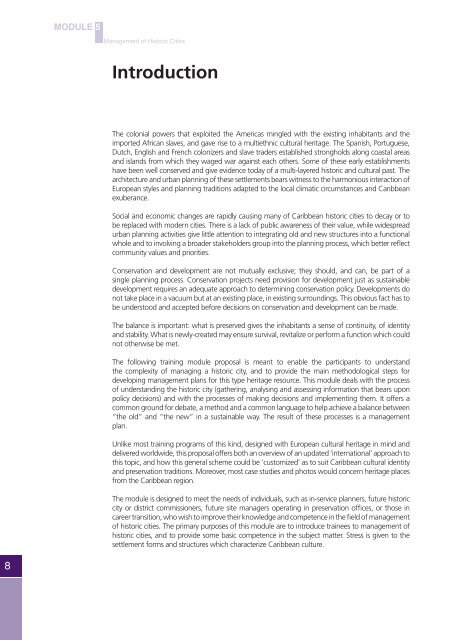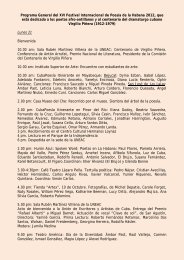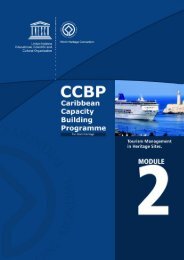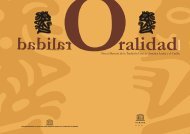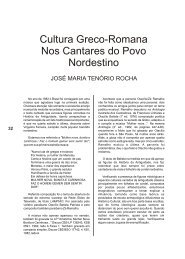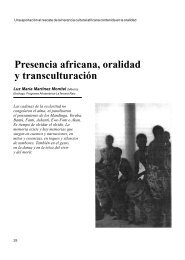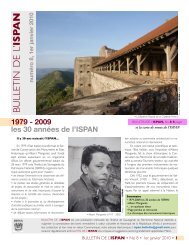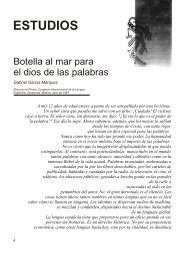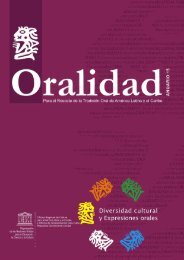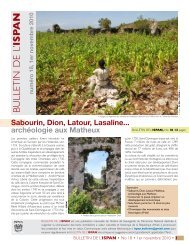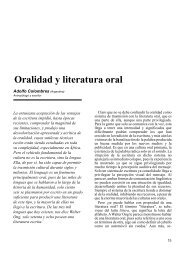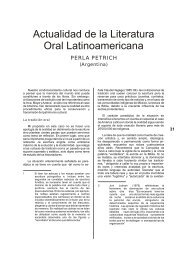Module 5: Management of Historic Cities - UNESCO: World Heritage
Module 5: Management of Historic Cities - UNESCO: World Heritage
Module 5: Management of Historic Cities - UNESCO: World Heritage
You also want an ePaper? Increase the reach of your titles
YUMPU automatically turns print PDFs into web optimized ePapers that Google loves.
MODULE 5<br />
<strong>Management</strong> <strong>of</strong> <strong>Historic</strong> <strong>Cities</strong><br />
Introduction<br />
The colonial powers that exploited the Americas mingled with the existing inhabitants and the<br />
imported African slaves, and gave rise to a multiethnic cultural heritage. The Spanish, Portuguese,<br />
Dutch, English and French colonizers and slave traders established strongholds along coastal areas<br />
and islands from which they waged war against each others. Some <strong>of</strong> these early establishments<br />
have been well conserved and give evidence today <strong>of</strong> a multi-layered historic and cultural past. The<br />
architecture and urban planning <strong>of</strong> these settlements bears witness to the harmonious interaction <strong>of</strong><br />
European styles and planning traditions adapted to the local climatic circumstances and Caribbean<br />
exuberance.<br />
Social and economic changes are rapidly causing many <strong>of</strong> Caribbean historic cities to decay or to<br />
be replaced with modern cities. There is a lack <strong>of</strong> public awareness <strong>of</strong> their value, while widespread<br />
urban planning activities give little attention to integrating old and new structures into a functional<br />
whole and to involving a broader stakeholders group into the planning process, which better reflect<br />
community values and priorities.<br />
Conservation and development are not mutually exclusive; they should, and can, be part <strong>of</strong> a<br />
single planning process. Conservation projects need provision for development just as sustainable<br />
development requires an adequate approach to determining conservation policy. Developments do<br />
not take place in a vacuum but at an existing place, in existing surroundings. This obvious fact has to<br />
be understood and accepted before decisions on conservation and development can be made.<br />
The balance is important: what is preserved gives the inhabitants a sense <strong>of</strong> continuity, <strong>of</strong> identity<br />
and stability. What is newly-created may ensure survival, revitalize or perform a function which could<br />
not otherwise be met.<br />
The following training module proposal is meant to enable the participants to understand<br />
the complexity <strong>of</strong> managing a historic city, and to provide the main methodological steps for<br />
developing management plans for this type heritage resource. This module deals with the process<br />
<strong>of</strong> understanding the historic city (gathering, analysing and assessing information that bears upon<br />
policy decisions) and with the processes <strong>of</strong> making decisions and implementing them. It <strong>of</strong>fers a<br />
common ground for debate, a method and a common language to help achieve a balance between<br />
“the old” and “the new” in a sustainable way. The result <strong>of</strong> these processes is a management<br />
plan.<br />
Unlike most training programs <strong>of</strong> this kind, designed with European cultural heritage in mind and<br />
delivered worldwide, this proposal <strong>of</strong>fers both an overview <strong>of</strong> an updated ‘international’ approach to<br />
this topic, and how this general scheme could be ‘customized’ as to suit Caribbean cultural identity<br />
and preservation traditions. Moreover, most case studies and photos would concern heritage places<br />
from the Caribbean region.<br />
The module is designed to meet the needs <strong>of</strong> individuals, such as in-service planners, future historic<br />
city or district commissioners, future site managers operating in preservation <strong>of</strong>fices, or those in<br />
career transition, who wish to improve their knowledge and competence in the field <strong>of</strong> management<br />
<strong>of</strong> historic cities. The primary purposes <strong>of</strong> this module are to introduce trainees to management <strong>of</strong><br />
historic cities, and to provide some basic competence in the subject matter. Stress is given to the<br />
settlement forms and structures which characterize Caribbean culture.<br />
8


